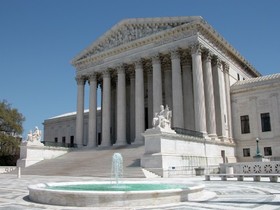WASHINGTON — The Supreme Court has been quietly revising its decisions years after they were issued, altering the law of the land without public notice. The revisions include “truly substantive changes in factual statements and legal reasoning,” said Richard J. Lazarus, a law professor at Harvard and the author of a new study examining the phenomenon.
The court can act quickly, as when Justice Antonin Scalia last month corrected an embarrassing error in a dissent in a case involving the Environmental Protection Agency.
But most changes are neither prompt nor publicized, and the court’s secretive editing process has led judges and law professors astray, causing them to rely on passages that were later scrubbed from the official record. The widening public access to online versions of the court’s decisions, some of which do not reflect the final wording, has made the longstanding problem more pronounced.
Wait, They Can’t Do That!

